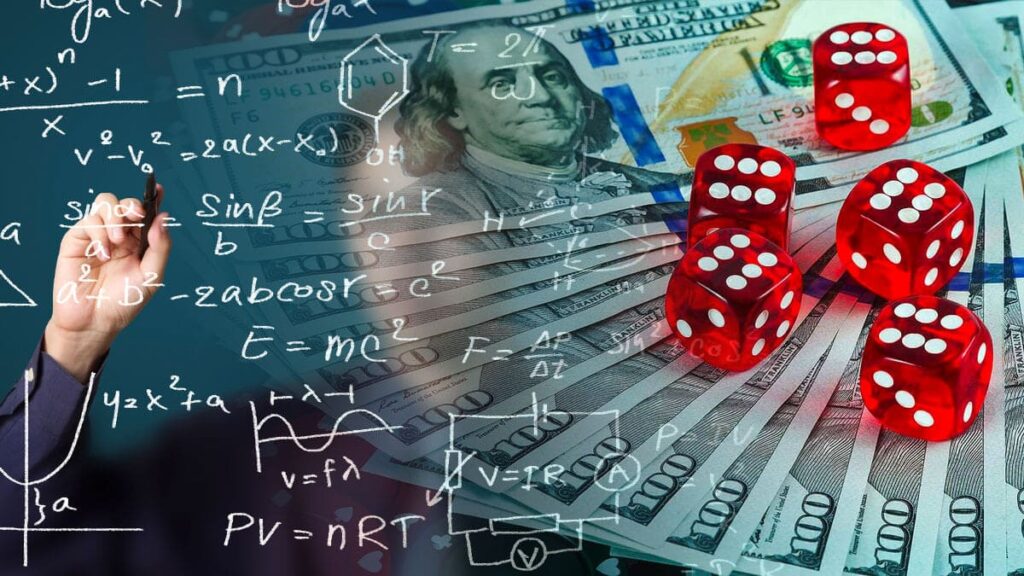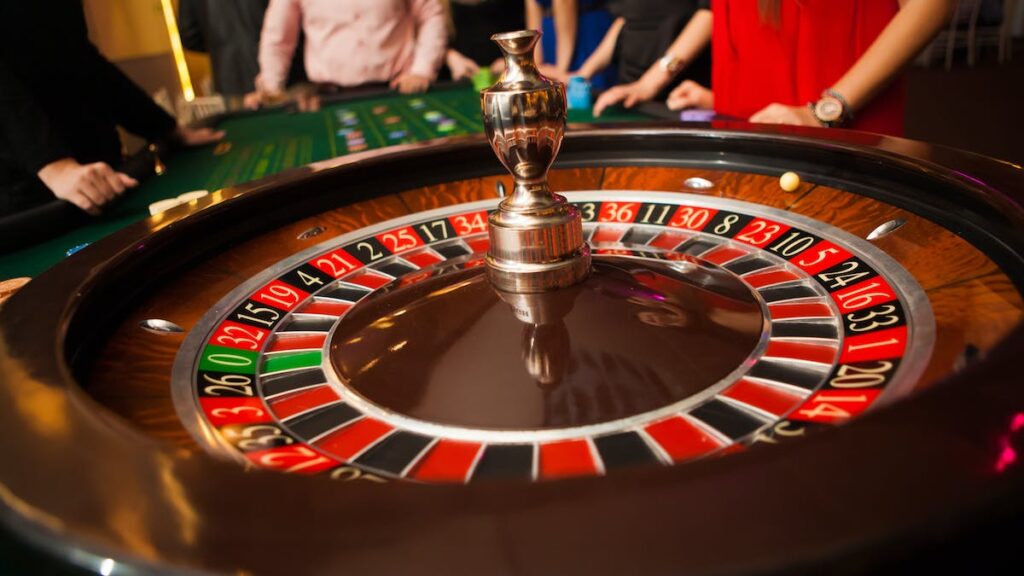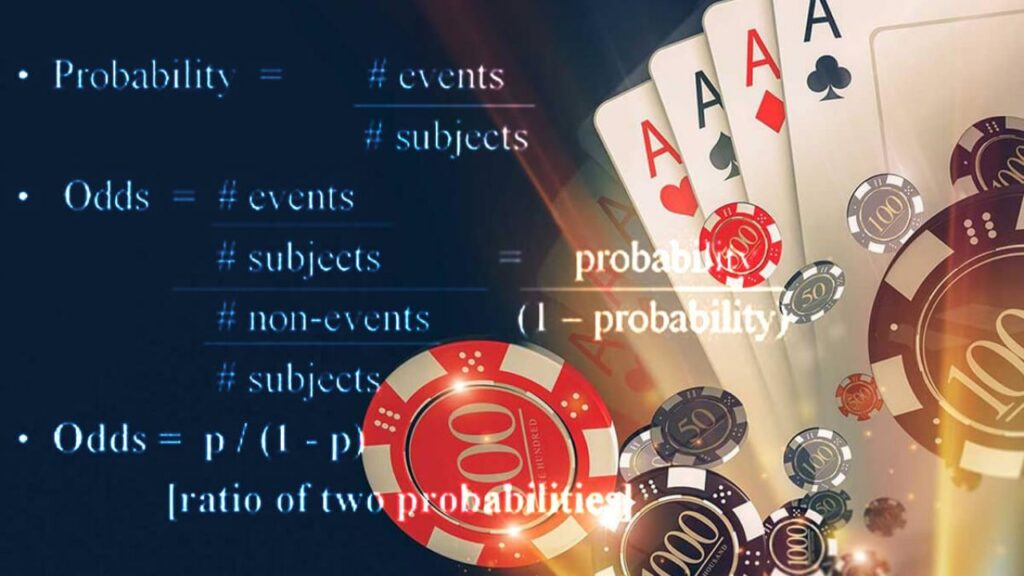Gambling implicates the utilization of games of possibility or skill to win cash or other awards. Probability plays a major role in gambling, as it can be used to determine the likelihood of certain outcomes and to make informed decisions about betting. Know more at https://20bet.com/in/casino
There are a few key concepts in the probability that are important for understanding gambling:
Randomness:
Gambling is all about the unpredictable nature of chance. An unpredictable occurrence is one whose result cannot be affected by external causes and whose result is not predicted.
Odds:
The probability that a happening will take place is expressed in terms of probabilities. They are sometimes represented in terms of the number of positive results to the total quantity of potential goods.
Expectation:
The expected result of an occurrence is the typical result if the occurrence were to be reproduced frequently. It is computed by dividing the likelihood of the occurrence by the result.
House Edge:
The benefit enjoyed by a club or other betting facility over participants is known as the house edge. For a particular sport, it is the discrepancy between the projected payoff and the real payment.
Participants can make better choices and possibly improve their odds of victory by comprehending these ideas and implementing them in certain situations. The house usually has an advantage in betting, so it’s crucial to keep that in mind.
Why does probability play a big role in gambling?

Probability plays a big role in gambling because it determines the likelihood of certain outcomes occurring. This information is used to calculate the odds of a bet, which in turn is used to set the payout for a winning bet. Understanding probability can also help a gambler make better decisions, such as determining when to place a bet or when to stop betting. In addition, the probability is also used to ensure that the game is fair, by ensuring that the odds of winning are the same for all players.
The Mathematics of Roulette

A tiny orb, a gambling board, and a rotating disc with numerical compartments make up the gambling activity of roulette. The purpose of the sport is to guess where the orb will fall on the roller with accuracy.
The mathematics of roulette is based on probability theory. The myriad of alternative possibilities for a given event to take place split by the entire quantity of possibilities yields the likelihood of that occurrence. In the case of roulette, the possible outcomes are the numbered slots on the wheel.
In a standard American roulette game, there are 38 slots on the wheel: numbers 1-36, a “0” slot, and a “00” slot. The probability of the ball landing on a specific number is 1/38, or approximately 2.63%. The probability of the ball landing on a specific color (red or black) is 18/38, or approximately 47.37%.
There are various parts on the wagering board, each of which corresponds to a certain kind of wager. The most typical types of wagers comprise:
• Directly: placing a wager on a certain figure
• Divided: placing a wager on two neighboring integers
• Street: placing a wager on 3 figures in a succession.
• Edge: placing a wager on a square of 4 figures.
• Column: Choose one of the 3 sections of digits on the gambling board and place your wager there.
• Dozen: Choosing one of the 3 pairs of 12 digits on the wagering board
• Even/Odd: betting on whether the number will be even or odd
• Red/Black: betting on whether the number will be red or black
Each type of bet has a different payout, with the straight-up bet having the highest payout (35:1) and the column and dozen bets retaining the most subordinate (2:1).
It’s important to remember that the house usually has the advantage in roulette because the rewards do not match the actual likelihood of the possible possibilities. This indicates that over the long term, the club will consistently turn a profit. It’s crucial to remember that roulette is a luck-based sport and that it’s impossible to know with precision where the puck will fall.
Is it indispensable to know the mathematics behind gambling?

It is not strictly necessary to know the mathematics behind gambling to gambling, but understanding the math behind the games can give players an advantage in certain situations. For instance, knowing the chances of various wagers in a sport like craps might assist a player in making better choices regarding which wagers to take. Furthermore, being aware of the house edge—the inherent benefit that the club enjoys in the majority of its games—can help a player handle their finances more skillfully and stay away from wagers that could cause them to suffer long-term deficits.
Pros and cons of roulette game
Roulette is a casino game that has both pros and cons.
Pros:
Roulette is a contest of possibility, which means that players do not need to have any special skills or knowledge to play.
Participants have a variety of wagering choices at their disposal, allowing them to personalize their matches and improve their probability of winning.
Roulette is a social match, and players can enjoy the excitement of the activity with friends and other players.
Cons:
Since the house advantage in roulette is reasonably strong, participants’ chances of long-term success are reduced.
The match can be addictive and lead to excessive gambling.
Roulette can be expensive to recreate, especially if participants make enormous wagers.
Overall, roulette can be an enjoyable and exciting activity to recreate, but players need to keep in mind that it is a game of probability and that they should gamble responsibly.
Our Final Verdict
Betting is the activity of making a prediction or placing a gamble on a situation having an unknown conclusion, usually with the hope of increasing one’s financial or materialistic fortune. Gambling can take many forms, including lottery games, casino games, and sports betting, and is a popular pastime around the world. However, it can also lead to addiction and financial problems if not approached responsibly. Therefore, play responsibly.
